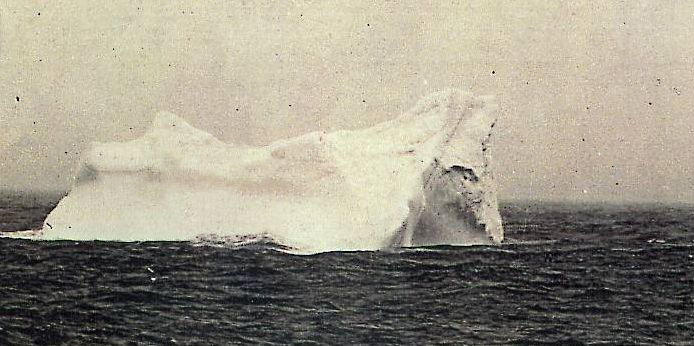A new study has found that the number of icebergs is on the rise in recent years. As the polar ice sheets are shrinking, the number of icebergs is increasing. It is becoming more likely that these icebergs will make it as far south as Newfoundland. The study also claims that the risk of coming […]
Tag: climate change
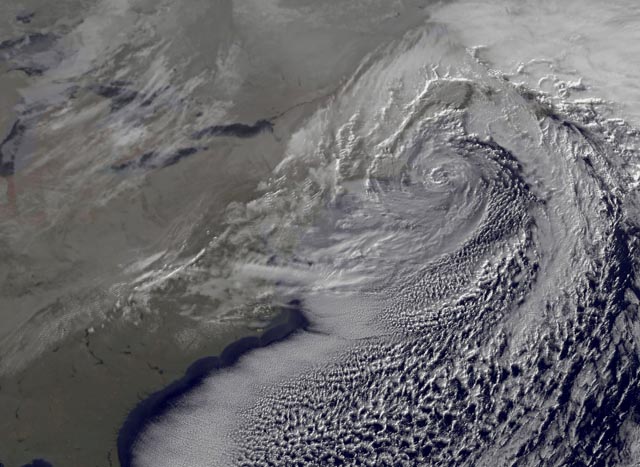
Atlantic temperatures could help explain colder winters
The extreme cold weather observed across Europe and the east coast of the US in recent winters could be partly due to a natural, long-term pattern of warming and cooling Atlantic waters, known as the Atlantic Multidecadal Oscillation (AMO). Earth scientists have shown a connection between this pattern and changes in atmospheric circulation that allow […]

Climate change: Impacts, adaptation and vulnerability
At 8 PM Eastern Time on Sunday, March 30, 2014, the Intergovernmental Panel on Climate Change (IPCC) Working Group II released its Summary for Policymakers at the end of a week-long meeting in Yokohama, Japan. This is the second of the three working groups that together produced the IPCC’s Fifth Assessment Report (AR5). For more […]
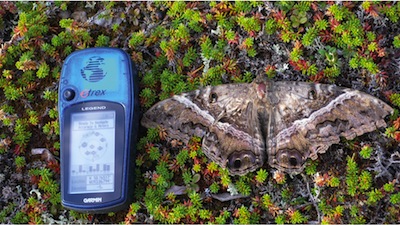
Tropical “Black Witch” found in Churchill, Manitoba
In Mexican folklore, the moth known as the Black Witch (Ascalapha odorata) is a bad omen, a harbinger of death. The species is normally found in tropical regions, but does occasionally come to southern Canada during the summer. A new paper documents a sighting of this species in Churchill, Manitoba, the furthest north it has ever […]

Predators are the main drivers of the Arctic tundra food chain
A new study shows that predators (Arctic fox, wolves, stoat, snowy owls) are the main drivers of the Arctic tundra food chain. Usually, predators regulate the food chain in a given ecosystem, but researchers previously thought that this view did not apply to the Arctic tundra as there are too few herbivores such as caribou, […]
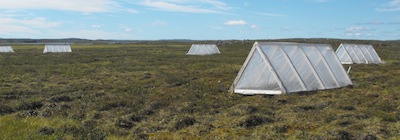
Shrubs duke it out in a warming Arctic
As the Arctic tundra warms, will fast-growing leafy plants come to dominate the landscape, or will they lose out to the slow-but-steady evergreens? The results of a 8-year experiment using plastic greenhouses to simulate warmer temperatures seem to indicate the latter. Even though deciduous trees are better at exploiting fertile environments, the tougher evergreens grew […]
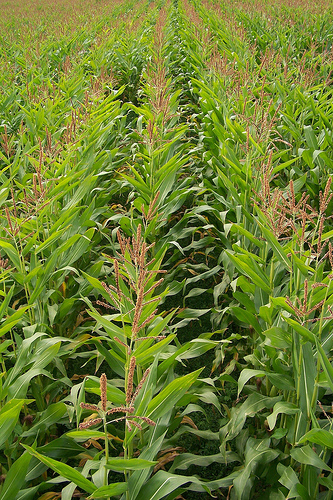
Climate change and impacts on maize, spring wheat and soybeans
A new study predicts that by the 2080’s global production of maize will have fallen by nearly 13 per cent. By balancing a variety of factors, such as rising CO2 levels and patterns in climate change, researchers are able to establish a model to predict future crop yields. While maize will decrease, yields of spring […]
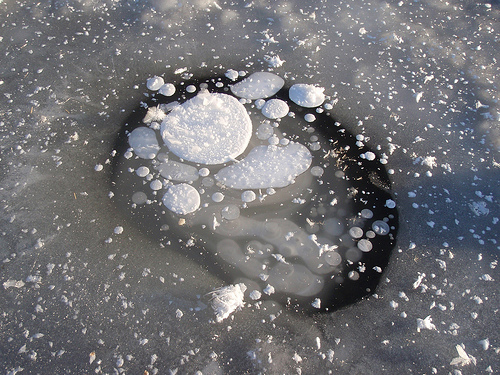
Methane emissions from ecosystems to increase 
Microbes found in aquatic, wetland and rice-paddy ecosystems emit methane instead of carbon dioxide during respiration. As temperatures rise, the emissions from these organisms rise too. A new study shows that methane emissions from aquatic microbes will increase with temperature faster than either respiration or photosynthesis of other living organisms. Methane is a more […]
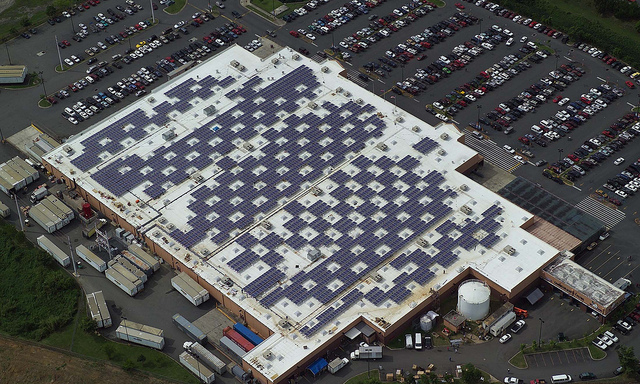
Low-carbon strategies for cities 
A team of civil engineers has conducted a detailed analysis of 22 cities from around the world, which could help policymakers choose the right tools to combat climate change on a municipal level. Depending on their climate, industrial base and population densities, cities can use a variety of tools and techniques to lower their carbon emissions. […]
Ice anomalies in the Mackenzie Delta may help explain sea ice loss
As the climate warms, scientists predict more precipitation, higher river flows and earlier ice breakup in the spring. But even though ice is breaking up earlier on Canada’s longest river – the Mackenzie – its total discharge has not changed. A new analysis shows that the cause may instead be reduced snow accumulation in the […]
How warm days increase belief in global warming
This week’s freezing temperatures may have temporarily re-enforced climate specticism, while heat waves, on the other hand, increase belief in global warming. A team of climate scientists and psychologists found out that the explanation is the phenomenon of attribute substitution, whereby people prefer to use less relevant but more easily available information (such as today’s […]
Climate change could affect microbes too
Saccharomyces paradoxus is a tree fungus closely related to the yeast used to make bread and beer. A new genetic mapping study shows that samples of S. paradoxus taken from across eastern North America are genetically distinct from each other, and that each grows best in the conditions that match its native habitat. This suggest […]
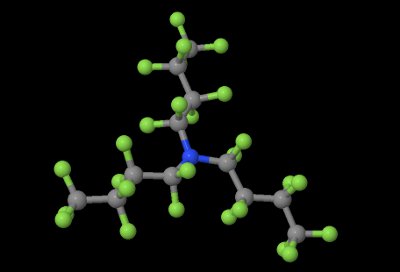
A new greenhouse gas?
Perfluorotributylamine is a non-reactive, long-lived substance that is used as a solvent and a heat transfer fluid in some specialized industries. A new study shows that it’s also a powerful greenhouse gas, producing as much warming as 7100 molecules of CO2 over a 100-year timeframe. Even though its concentration in the atmosphere is tiny (0.18 […]

IPCC 5th Assessment, Working Group I – The Physical Science of Climate Change | Webinar recording
IPCC 5th Assessment, Working Group I – The Physical Science of Climate Change – September 27, 2013 The summary for policy makers from the Intergovernmental Panel on Climate Change (IPCC) was released on Friday September 27 morning at a meeting in Stockholm. In it, scientists present the latest assessment on the science of global climate […]

Shrinking Arctic sea ice | Webinar recording
Shrinking Arctic sea ice – September 12, 2012 Arctic sea ice is melting faster and more extensively than ever recorded in three decades of satellite measurement – and it’s not done yet. Data released from the National Snow and Ice Data Center says that sea ice area is now less than four million square kilometres – about […]
IPCC Report on Extreme Weather Events | Webinar recording
IPCC Report on Extreme Weather Events – November 18, 2011 Extreme weather has severe consequences. It transforms landscapes, damages infrastructure, and results in human injury and loss of life. How is climate change influencing extreme weather? The Intergovernmental Panel on Climate Change (IPCC), signed their report on Extreme Eventsin Kampala, Uganda, on Friday, November 18th, 2011. The […]
